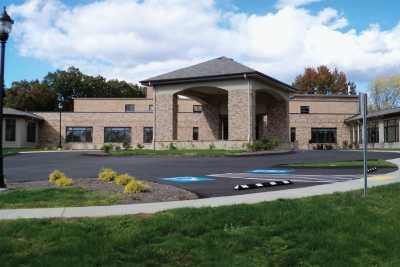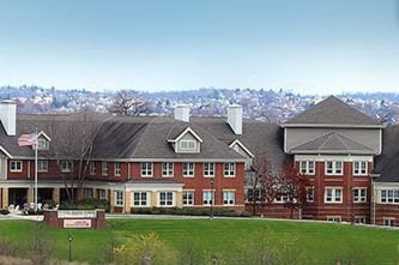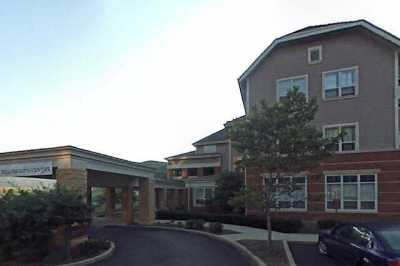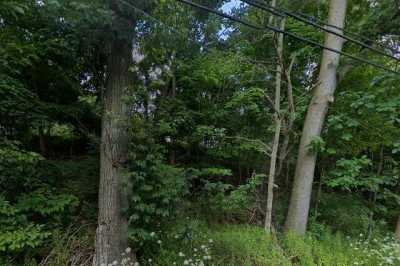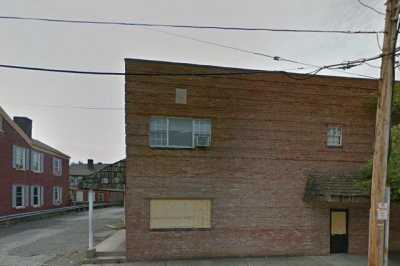
10 Best Memory Care Facilities in Pittsburgh, PA
As a loved one progresses through the different stages of dementia, changes in behavior and care needs can become more than their family or caregiver can manage alone. Many families seek out memory care in Pittsburgh to provide a safe environment for their loved one with Alzheimer’s or other forms of dementia. Memory care facilities provide access to specialized therapies and programs, advanced security features, and round-the-clock support.
A Place for Mom partners with 23 memory care facilities within a 10-mile radius of downtown Pittsburgh. We’ve pulled together highly detailed data from our partner communities to help families and caregivers with their search for memory care in Pittsburgh. We highlight details on local memory care costs, amenities and services, and payment options. We also provide local senior benefit resources for Pittsburgh seniors and outline the regulations for memory care facilities in Pennsylvania.
Pittsburgh Memory Care Facilities | 711 Reviews
While no facility is perfect, Fair Oaks comes very close. I think a big reason for this is that it's not a "for profit" facility like most others, so the management can focus on ensuring that the residents...
Woodcliffe Manor is hands down the best facility I could have chosen for my father. Sure the place is out of date but the care is wonderful. The staff knew my entire family by the first week. Sure the...
Our free advisors can help
- Compare local facilities
- Determine care type
- Schedule tours
- Evaluate pricing
Our methodology
How we rank order the Pittsburgh community options above
We developed a proprietary recommendation system that orders Pittsburgh community options based on factors we know are important to seniors and their families:
- Proximity to your search location
- Availability of recent, high-quality reviews
- The amount of detailed community information available
Where we source our information
14,000+ communities
We collect proprietary data from our network of 14,000+ senior living communities in the U.S., with regular refreshes of data and information
350,000+ reviews
We have 387,000+ reviews from senior living residents and family members that provide first-hand accounts about senior living communities
- Costs of memory care in the Pittsburgh area
- What families are saying about memory care in Pittsburgh
- How people pay for memory care in Pittsburgh
- Understand Pennsylvania laws and regulations for memory care facilities
- What to expect from memory care in Pittsburgh
- Unfamiliar with Pittsburgh? Highlights for seniors
Costs of memory care in the Pittsburgh area
Our partner Pittsburgh memory care facilities cost an average of $5,500 per month, according to A Place for Mom’s 2022-2023 proprietary data.[01] This figure takes into account the cost of room and board, care costs, and add-on fees for items like parking and pet care. This amount paints a better picture of what families actually pay for one of our partner Pittsburgh memory care facilities.
Residents in memory care facilities have access to more extensive services, like round-the-clock awake staff, specialized therapies and activities, and increased security measures. This tends to make monthly rent more expensive than other types of senior care communities. Memory care services, specialized staff, and safety measures are usually factored into the baseline rent along with other services, like the following:
- Housekeeping and laundry
- Transportation
- Meal plans, including snacks
- Medication management
- Assistance with activities of daily living (ADLs)
You’ll notice the numbers below look a bit different than our proprietary figure above. The following figures account for baseline memory care costs only and don’t include any add-ons that families may choose upon moving in. You can use the figures below to compare starting costs of memory care communities across the greater Pittsburgh area.
Average monthly cost of Memory Care in Pittsburgh, PA vs. nearby cities
Average monthly cost of Memory Care in Pittsburgh, PA vs. the state and national average
Average monthly cost of Memory Care in Pittsburgh vs. other types of senior living
Median monthly costs of Memory Care in Pittsburgh, PA by room type
Average cost of Memory Care in Pittsburgh over time
What families are saying about memory care in Pittsburgh
Recent reviews for memory care in Pittsburgh
Arden Courts A ProMedica Memory Care Community in North Hills in Pittsburgh, PA
Asbury Heights in Pittsburgh, PA
Paramount Senior Living at Cranberry in Mars, PA
Pittsburgh review score based on 191 family reviews
This proprietary review score is based on 191 reviews of 31 Pittsburgh memory care communities. All reviews were submitted in the past two years by verified community residents and family members.Pittsburgh review score compared against nearby cities
Review subcategories for Pittsburgh memory care
When memory care residents and family members submit a review on our site, they rate each community on categories such as cleanliness, activities, meals, and more. The chart below is based on 191 reviews of 31 Pittsburgh memory care communities. This chart helps you compare Pittsburgh resident and family memory care satisfaction rates against national averages. Use it to assess your needs and develop criteria for your own search. If you know that one of these categories is important to you or your loved one, our senior living advisors can help you find communities to match your needs.How people pay for memory care in Pittsburgh
Families often use a combination of private assets and public benefit options to subsidize the costs of long-term memory care. This section outlines several different options that could be put towards the cost of memory care in Pittsburgh. You’ll find a variety of private payment examples, as well as public benefits such as Medicare, Medicaid, and veterans benefits.
Before exploring public benefit options, many families often weigh what personal assets they have on hand to pay for memory care in Pittsburgh. The availability and amount of private funds available varies from family to family. For many, private payment methods come from retirement income, investment returns, and personal savings. Other sources may include additional assets and resources as a means to pay for an ideal memory care community, such as those listed below.
Number of veterans living in Pittsburgh in 2022
About 81% of Pittsburgh’s veteran population is age 55 and older.
Eligible veterans and their surviving spouses may qualify for certain disability benefits through the Department of Veterans Affairs (VA). Some of these veteran-specific disability benefits, like the Aid and Attendance benefit, can be used to pay for memory care in Pittsburgh. Aid and Attendance is a generous benefit that can help with some or all of the costs of memory care, like rent, care services, and meals, as it can be used for anything that improves a senior’s quality of life.
Eligibility for veterans benefits
Various VA benefit programs could be available to veterans or their surviving spouses. Eligibility requirements can often be confusing to navigate. This is why speaking with a veteran benefits counselor is the best way to understand eligibility before applying. If you want to make sure your loved one doesn’t miss out on any benefits, it’s in their best interest to reach out to a local veterans service office (VSO) for VA benefit advice.
Pittsburgh veterans service organizations (VSOs)
Many veterans and families often feel overwhelmed and confused when applying for veterans benefits. Fortunately, several veterans service organizations (VSOs) in Pittsburgh can help veterans and families apply for benefits they may qualify for. Many of these VSOs are located at the Pittsburgh VA Regional Office. VSOs in Pittsburgh include the following organizations:
- American Legion
- Pittsburgh Paralyzed Veterans of America
- American Veterans (AMVETS)
- Disabled American Veterans (DAV)
- Veterans of Foreign War (VFW)
Additionally, you can also reach out to the Allegheny County Veterans’ Services office and the Pennsylvania Department of Military and Veteran Affairs (PADMVA) to get help applying for state-specific benefits. You can find the contact information for the above organizations, other local VSOs, and online veterans benefit guides in the resources below.
Resources for Pittsburgh veterans
Pittsburgh VA Regional Office
1000 Liberty Ave.
Pittsburgh, PA 15222
Monday through Friday, 8am – 4pm
Pennsylvania Department of Military and Veteran Affairs (DMVAPA)
4141 Fifth Ave., Third Floor
Pittsburgh, PA 15213-3347
Phone: 412-621-3622
Allegheny County Veterans’ Services
4141 Fifth Ave.
Pittsburgh, PA 15213-3347
Phone: 412-621-4357
Contact Veterans’ Services form
American Legion — Pittsburgh service officers
1000 Liberty Ave., Room 1607
Pittsburgh, PA 15222
Phone: 412-395-6230
Pittsburgh Paralyzed Veterans of America — Find a national service officer
1000 Liberty Ave., Room 1602
Phone: 412-395-6255
American Veterans (AMVETS) — Pennsylvania service officers
1000 Liberty Ave., Room 1605
Pittsburgh, PA 15222
Phone: 412-395-6267
Disabled American Veterans (DAV) — Find your local office
1000 Liberty Ave., Room 1606
Pittsburgh, PA 15222
Phone: 412-395-6241
Pennsylvania’s state-managed Medicaid program — Medical Assistance (MA) — may pay for some memory care costs at a senior care facility through their home and community based services (HCBS) waiver programs. You can also find a full list of other MA home and community based services waiver programs on the Pennsylvania Department of Human Services website.
The Community HealthChoices (CHC) is a Medicaid-managed care program that helps eligible seniors access long-term services and supports (LTSS) that aren’t normally covered by MA. The CHC program coordinates and oversees recipients’ health care coverage with managed care organizations (MCOs) to make sure participants have access to needed services. We outline more details about this particular program below.
Community HealthChoices (CHC) waiver
The Community HealthChoices (CHC) waiver helps eligible seniors and disabled adults access services from within their homes or community to avoid nursing home placement. To qualify for a CHC waiver, individuals must need a nursing home level of care, be dual-eligible for Medicaid and Medicare (or receiving LTSS through an HCBS waiver), and be age 65+ (or 21+ with a disability).[03] While a CHC waiver doesn’t cover the room and board costs of memory care, it does cover several long-term services such as the following:[04]
- Behavior therapy
- Personal care (help with activities of daily living, meal preparation, etc.)
- Cognitive rehabilitation therapy
- Medical equipment and supplies
- Assistive technology (walkers, listening devices, etc.)
Applying for Medical Assistance (MA)
Whether you prefer online, in-person, or over the phone, Pennsylvania has several different ways you or a loved one can apply for Medicaid.
- Apply online via the COMPASS website.
- Visit your local county assistance office (CAO) for in-person applications.
- Call 866-550-4355 to apply over the phone.
- Download an application from the Pennsylvania DHS website and mail it to your local county assistance office.
Help with Pennsylvania Medicaid
The Pennsylvania Department of Human Services (DHS) has a dedicated helpline for COMPASS and benefits assistance. You can also reach out to the Pennsylvania Health Law Project, which is a nonprofit legal service that can help senior clients with Medicaid benefits and eligibility issues. One of the local Allegheny County assistance offices can also provide Medicaid support in person or over the phone.
Medicaid resources
Pennsylvania Department of Human Services
COMPASS/Benefits helpline: 800-692-7462
Allegheny County Assistance Office (CAO) headquarters
Piatt Place
301 Fifth Ave., Suite 470
Pittsburgh, PA 15222
Phone: 412-565-2146
Pennsylvania Health Law Project (PHLP)
Phone: 800-274-3258
Medicare is the federal health insurance for seniors age 65+ and disabled individuals. The program is designed to help pay for short-term health care costs and medical expenses such as inpatient hospital stays, skilled nursing care, and hospice care. It doesn’t help with any of the custodial costs related to memory care such as room and board and personal care support. Some specific memory care costs may be covered by Medicare for eligible seniors like cognitive assessments, care planning, and medications.
Medicare savings programs in Pennsylvania
Pennsylvania offers options that may be able to help seniors lower some out-of-pocket expenses. Medicare cost-savings programs like Extra Help — also called the Part D low-income subsidy — and the Medicare Savings Program (MSP) can be used to help eligible individuals pay for costs such as Medicare premiums, deductibles, and prescriptions. Visit the Pennsylvania Department of Aging website to find out more about Pennsylvania’s Medicare cost-savings programs, eligibility, and how to apply.
Medicare benefits counseling
Pennsylvania offers free Medicare counseling through the Pennsylvania Medicare Education and Decision Insight (also called PA-MEDI). PA-MEDI has trained counselors available to help you understand your loved one’s Medicare coverage and provide information on other topics that include benefits, eligibility, and Medicare savings programs. You can either call the PA-MEDI helpline or contact the Allegheny County Area Agency on Aging to get in touch with a PA-MEDI counselor. You can also look up and contact your local Social Security Administration for Medicare help.
Pittsburgh Medicare resources
Allegheny County Area Agency on Aging (AAA)
2100 Wharton St., Second Floor
Pittsburgh, PA 15203
Phone: 412-350-4234
Pennsylvania Medicare Education and Decision Insight (PA MEDI) helpline
Phone: 800-783-7067
Social Security Administration office — Pittsburgh
700 Grant St. Suite 1204
Pittsburgh, PA 15219
Phone: 866-770-2965
Understand Pennsylvania laws and regulations for memory care facilities
Pittsburgh memory care facilities — as well as assisted living facilities that offer dedicated dementia care units — are regulated by the Pennsylvania Department of Human Services. The department’s Office of Long-Term Living (OLTL) licenses these types of facilities and conducts annual inspections to make sure state-licensed facilities are following Pennsylvania’s laws and regulations for assisted living and personal care homes. Both types of facilities can offer memory care, but personal care homes don’t provide full-time nursing home care like assisted living residences. Facilities licensed as personal care homes are regulated a little differently.
Since seniors with Alzheimer’s don’t usually require full-time nursing care, we’re focusing on regulations in place for personal care homes that offer memory care. Pennsylvania’s regulations and requirements for personal care homes are all available online, but we outline some distinct measures in place for memory care facilities below. You can find inspection reports for all licensed assisted living and memory care facilities on the Human Services provider directory search form. There, you can search for personal care homes and assisted living communities by directly entering a facility name or by selecting a specific county or region to review all licensed providers.
Admission requirements
Pre-admission screenings are required to make sure a prospective resident’s care needs can be met in the facility. Personal care homes will generally not admit residents with extensive care needs, like round-the-clock skilled nursing or ventilator dependency. A physician or licensed health professional must provide a written medical assessment before admission to a secured dementia unit. This assessment needs to be provided within 60 days of admission to a facility and must determine the prospective resident’s dementia diagnosis and need for memory care.
Resident care
Residents in a memory care facility or secured dementia unit must undergo a pre-admission cognitive assessment within 72 hours of admission. An annual evaluation should confirm their need for memory care, and their support plan must be established and updated annually to note any changes to a resident’s condition. It must also indicate the individual needs of each resident and designate a person who should be involved with their support plan.
Resident transfers
Any memory care facility or personal care home that transfers a resident must provide a 30-day notice with the reasons for the release outlined. There are limited circumstances that call for the transfer of a resident from a facility. These include if a resident is a threat to themselves or others, a resident’s needs can’t be met in the community, or if payments haven’t been made.[05]
Safety features
While many memory care facilities have enhanced safety features, like wander prevention systems and enclosed courtyards, Pennsylvania doesn’t require communities to have dementia-safety features. Some secured dementia units may have security systems to deter unexpected exits, but they must have permission from the Department of Labor and Industry to have such security measures. Any memory care facility with a locking system that prohibits residents from exiting must confirm it will shut down in the event of emergency situations. For example, in the event of a power outage or an activation of a fire alarm, there should be a system override in place that uses a keypad or other device.
All personal care homes must follow specific fire safety procedures. There must be at least two accessible exits on every floor. Automatic smoke detectors must be located within 15 feet of every bedroom door, and all smoke detectors and fire alarms should be tested monthly. Additionally, there must be an operable fire extinguisher on each floor, and it can only be locked away if the extinguisher poses a safety risk to residents. However, all extinguishers must be accessible to staff members.
Staff training and requirements
An orientation on fire safety and emergency preparedness must be completed by every direct staff member before their first day of work. They must also annually undergo 12 hours of training on topics related to their job duties, like caring for residents with dementia and personal care services.
Additionally, all direct care memory care staff working in a secured dementia unit are required to complete an annual 6 hours of dementia care training. Pittsburgh memory care facilities don’t have a minimum staff-to-resident ratio requirement, but they’re required to have sufficient staff available to meet the needs of each resident. Pennsylvania regulations also require at least one staff member trained in CPR and first aid to be available for every 50 residents.[05]
COVID-19 regulations for Pittsburgh memory care facilities
Pittsburgh memory care facilities may have COVID-19 policies that vary on a community-by-community basis, but many follow the guidance set at the state level. As of June 2023, Pennsylvania doesn’t have any set COVID-19 mandates in place for memory care facilities. But some communities may have their own precautions in place that are stricter than the state’s. You should contact a prospective community directly to see what current COVID-19 measures may be in place.

Masking.
There’s no mask mandate in Pennsylvania, but some memory care facilities may require residents, staff, and visitors to wear masks in indoor public settings.

Vaccines.
All residents, staff, and visitors of senior care facilities are encouraged to stay current on COVID-19 vaccines and boosters.

Quarantining.
Residents with suspected or confirmed COVID-19 infection should isolate in a single-person room with a bathroom for at least 10 days, depending on symptom severity and duration.

Facility cleanliness.
Senior care facilities should regularly clean and disinfect frequently touched surfaces and objects.
What to expect from memory care in Pittsburgh
Pittsburgh memory care facilities are designed to provide a safe living environment for residents with Alzheimer’s and other forms of dementia. You can expect to find secured living spaces, specialized programs and therapies, and enhanced safety measures at most of A Place for Mom’s partner memory care facilities. Read on for just a few of the features, amenities, and services you’ll likely find at one of our partner memory care facilities in Pittsburgh.
Person-centered care
Most of our partner memory care facilities in Pittsburgh pride themselves on offering person-centered care, meaning care that’s tailored to the needs of each individual. Person-centered memory care also consists of dedicated activities and programs for residents with Alzheimer’s and other types of dementia. These programs are designed to keep residents interested and engaged, such as reminiscence and sensory-based programs, as well as light therapy.
Comforting surroundings
Many Pittsburgh memory care facilities aim to provide not just a safe environment, but a homelike atmosphere. Some communities include neighborhood-like grounds for residents to explore, with secured common areas like indoor walking paths, enclosed courtyards, and specialized systems to prevent wandering.
You’ll also find Pittsburgh memory care facilities offer a variety of floor plans, ranging from private studios and suites to semi-private rooms. Most memory care suites also feature a private bathroom, and the majority of our partner communities have wheelchair-accessible showers. Some memory care suites even feature customizable memory display cases that residents can personalize with photos and other memorabilia at the entrance.
Different care types on-site
About half of A Place for Mom’s partner memory care communities are within a facility that also offers assisted living. Residents in memory care usually live in separate wings or neighborhoods within the greater community. Residents in memory care generally enjoy the same amenities and services as those in assisted living, such as daily meals and activities. Additionally, memory care residents enjoy access to resources and services that include enhanced security features and round-the-clock awake staff.
Specialized memory care support
The specially trained staff at memory care facilities are qualified to provide a wealth of supportive therapies and resources to residents. Communities often collaborate and communicate with families about their loved one’s care plans, so care services can be tailored to individual personalities. You can expect an individualized, person-centered care plan at our memory care partners, fortified with specialized, tried and true care techniques and therapies.
Pittsburgh is also very much a dementia-friendly community, with several local resources available for seniors and their families. For example, University of Pittsburgh’s Alzheimer’s Disease Research Center has education and counseling services for patients with dementia and their families. The Alzheimer’s Association Greater Pittsburgh also offers support groups and educational programs for families with loved ones living with Alzheimer’s or other forms of dementia. Seniors in memory care facilities can also reach out to the Allegheny County ombudsman for help with facility complaints and information about long-term care services.
Unfamiliar with Pittsburgh? Highlights for seniors
Number of seniors in Pittsburgh over the age of 65
Health care for seniors in Pittsburgh
Many of our partner memory care facilities in Pittsburgh have access to on-site health services and support, such as on-call doctors and on-site nursing. Nearly all of our in-network communities also have regular visits from specialized therapists, nurses, and podiatrists.
Additionally, Pittsburgh seniors can take advantage of several nearby hospitals recognized for their care services and various specialties. You can find just some of Pittsburgh’s local hospitals below.

St. Clair Hospital
St. Clair Hospital is an acute-care hospital with access to an array of high-quality health care. St. Clair has been awarded the 2023 Patient Safety Experience Award and the 2023 Outstanding Patient Experience Award by Healthgrades. The hospital is a member of the Mayo Clinic Network and gives St. Clair physicians direct access to Mayo Clinic’s experts to provide patients the highest level of care at no extra cost.

UPMC Shadyside
UPMC Shadyside is nationally ranked in several specialties that include cancer, cardiology, and geriatrics. The recognized hospital has received a Magnet designation — the highest international recognition for nursing excellence and leadership — for its nursing professionalism and quality of care. UPMC Shadyside also offers advanced treatments and surgical options for an array of neurological conditions.

Jefferson Hospital
Jefferson Hospital offers a range of award-winning medical services that range from stroke care and joint replacements to heart and vascular services at its AHN Cardiovascular Institute. It has also received Magnet designation for its nursing excellence and patient care. Jefferson Health’s expert neurologists and neurosurgeons offer cutting-edge treatments and services for an assortment of neurological conditions, including Alzheimer’s and other types of dementia.
Transportation for seniors in Pittsburgh
Over half of our partner memory care facilities in Pittsburgh have on-site transportation, either complimentary or at-cost depending on the community. Since riding public transportation alone and driving aren’t safe ways for seniors with dementia to get around, on-site transportation is essential to help them get to and from places like medical appointments.
Door-to-door senior transportation in Pittsburgh
Seniors who don’t have access to on-site transportation in their memory care community may be able to benefit from one of the door-to-door rider services in Pittsburgh. You can find out more about these transportation options below.
- Elder Express is a van service for seniors age 65+ and makes scheduled stops in the Squirrel Hill area.
- AgeWell Rides offers no-cost transportation to seniors age 60 and older who no longer drive and need help going to locations like appointments, community events, and errands.
- Older Persons Transportation (OPT) helps older adults get to and from grocery stores and medical appointments.
Public transportation for visiting friends and family
Pittsburgh Regional Transit (PRT) has an extensive network of transportation services throughout Pittsburgh. These services include a rail line system with nearly 30 miles of track across the city, as well as a fleet of over 700 buses that operate throughout Allegheny County. PRT also offers free rides to seniors age 65+ who have a Senior Citizen ConnectCard, and it also has a door-to-door paratransit service for seniors age 65+ and people with a disability.
Senior activities in Pittsburgh
Pittsburgh has a broad selection of attractions that people of all ages and abilities can enjoy, from brilliant gardens and sports venues to refined museums. Take a look at some of Pittsburgh’s can’t-miss attractions, many of which provide accommodations to promote accessibility for all.
Phipps Conservatory and Botanical Garden
Phipps Conservatory and Botanical Garden is a premier spot for nature lovers who delight in stopping to smell the flowers. Enjoy walking through over 15 acres of flourishing floral displays and exhibits, or participate in the varying classes and programs. Most of the gardens are wheelchair accessible, and manual wheelchairs are available for guests for free, though availability may be limited.
Sports venues
From Pirates baseball and Steelers football to Penguins hockey, there are seemingly endless opportunities to cheer on Pittsburgh’s hometown teams. Pittsburgh’s sports venues also have various conveniences for people with disabilities and are ADA-accessible. You can find out more about these accessibility accommodations below.
- PPG Paints Arena is home to the Pittsburgh Penguins. This arena has accessible seating on every level, allows trained service animals inside, and can provide assistive listening devices (ALD) and interpretation services.
- Acrisure Stadium hosts a range of events, from Pittsburgh Steelers home games to various concerts and events. The stadium also offers a range of accessible accommodations for people with disabilities that include accessible parking, closed captioning assistance, and sensory packs.
- PNC Park is the home field of the Pittsburgh Pirates. This ballpark has an extensive list of accommodations available for guests with disabilities, like complimentary tickets for guests with a personal care attendant, dedicated sensory rooms, and free wheelchairs for guest use.
The Pittsburgh Zoo
The Pittsburgh Zoo is a beloved attraction for guests of all ages. All the zoo’s facilities are in compliance with ADA standards, and there are several amenities available to make sure everyone enjoys the best of the zoo’s attractions:
- Wheelchairs, scooters, and strollers are for rent upon availability.
- There are accommodations for guests who require a service animal.
- Sensory bags with fidget toys, noise-canceling headphones, and other resources are available for guests with sensory needs.
Pittsburgh museums
Museums can be an especially engaging activity to do with a loved one who has Alzheimer’s or another type of dementia. Whether their interest is in art, history, or sports, Pittsburgh’s assortment of museums can intrigue anyone. We list just a few of the accessible museums located in Pittsburgh below.
- The Heinz History Center offers a range of accessible services that include sensory bags, sign language interpreters, and assistive listening devices. Service animals are also welcome and all galleries are wheelchair accessible.
- The Western Pennsylvania Sports Museum welcomes trained service dogs and has wheelchair-accessible parking, assistive listening devices, and sensory bags for visitors with sensory needs.
- The Carnegie Museum of Art allows registered service animals inside and has closed captioning on all educational videos and wheelchair-accessible parking.
- The Andy Warhol Museum is a must-see Pittsburgh attraction. This museum has a variety of accommodations that include sighted guides, American Sign Language (ASL) interpretation, and touchable displays of signature works for guests with limited vision.
Frequently Asked Questions
Elizabeth Seton Memory Care Center, Ridgecrest and Arden Courts A ProMedica Memory Care Community in Jefferson Hills are the top-rated Memory Care facilities near Pittsburgh, PA. These Memory Care facilities received the highest rankings based on verified family reviews. See full list of communities.
The average cost of Memory Care in Pittsburgh is $5,833 per month. This cost may vary based on location, amenities, floorplan, level of care and other factors.
References
A Place for Mom. (2022-2023). A Place for Mom proprietary data.
United States Census Bureau. (2021). Veteran status (S2101): Pittsburgh. [Data set]. American community survey.
Pennsylvania Department of Human Services. (2019, August). Eligibility for CHC.
Pennsylvania Department of Human Services. Long-term services and supports benefits package.
Personal Care Homes, 55 PA Code § 2600 (2005).
United States Census Bureau. (2021). Population 60 years and over in the United States: Pittsburgh (S0102). [Data set]. American community survey.

More questions?
Ask an A Place for Mom local advisor at no cost.
- Greensburg, Pennsylvania
- Irwin, Pennsylvania
- Cranberry, Pennsylvania
- Mount Lebanon, Pennsylvania
- Wexford, Pennsylvania
- Murrysville, Pennsylvania
- Canonsburg, Pennsylvania
- Jefferson Hills, Pennsylvania
- West Mifflin, Pennsylvania
- Coraopolis, Pennsylvania
- Youngwood, Pennsylvania
- Aliquippa, Pennsylvania
- Monaca, Pennsylvania
- Sewickley, Pennsylvania
- Crestview, Pennsylvania
- Allison Park, Pennsylvania
- Oakmont, Pennsylvania
- Mars, Pennsylvania
- Carnot-Moon, Pennsylvania
- Apollo, Pennsylvania

